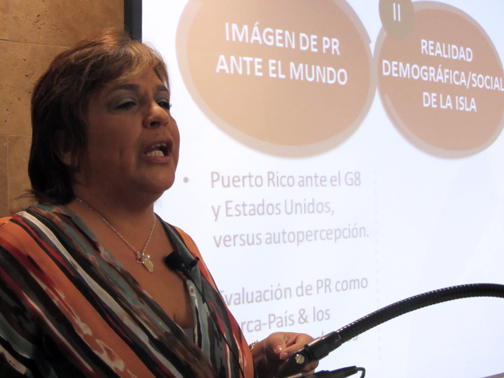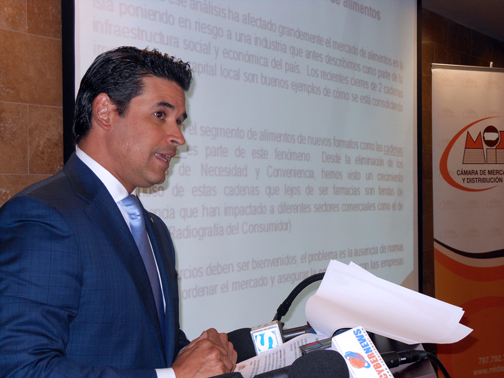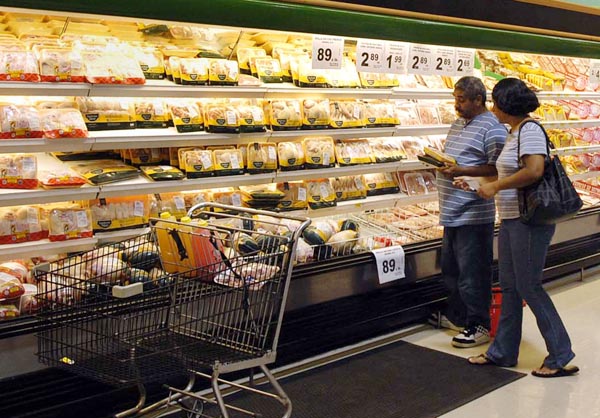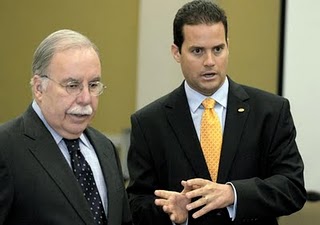
Puerto Rico consumers reduced their monthly grocery spending by 10 percent year-over-year to $507 in 2012 from $561 in 2011, marking the first time a drop has been registered since 2005, the Marketing, Industry and Food Distribution Chamber, known as MIDA, said Tuesday.

Saying that the food industry should be treated as part of the island’s social and economic infrastructure, the head of the Marketing, Industry and Food Distribution Chamber, known as MIDA, warned Tuesday of the “imperative” need to establish a permanent food policy for Puerto Rico.

The possibility that the federal government will give the green light to expanding Supplemental Nutritional Assistance Program benefits to include restaurants is practically zero, as Congress is looking to make funding cuts to lessen the system’s impact on the national budget.

Puerto Rico consumers spend $8.5 billion in food annually, an amount that represents 15 percent of their total expenses, making the sector one of the most important components of the local economy.

Puerto Rico imports a staggering 80 percent of all of the food that its nearly four million residents consume, a fact that compels thought and strategy on how to ensure there will be enough to go around now and in the future.

It seems as though everybody is looking for ways to drive down Puerto Rico’s mounting energy costs, which are strangling residential and commercial customers alike every month. On Monday, a large group of private sector representative came together to propose to the governor the creation of an independent body to find solutions in the short, medium and long term to deal with the problem.

The Marketing, Industry and Food Distribution Chamber expressed its opposition Tuesday to a proposal by Consumer Affairs Secretary Luis Rivera Marín to approve a regulation related to the Closing Law to allow pharmacies to sell more food items on the days that supermarkets must remain closed.

The Marketing, Industry and Food Distribution Chamber resolved Saturday to lobby — at the local and federal levels — to protect the close to $2 billion in federal funds Puerto Rico receives to float the Nutritional Assistance Program during next year’s Farm Bill review, organization officials said during its general assembly.

The changing economy is making it a virtual requirement for the food industry, especially supermarkets and other retailers, to stay ahead of trends to attract consumers, said Phil Lempert, known stateside as the "Supermarket Guru” for his reputation as one of the leading analysts of consumer behavior trends in the food industry.

Puerto Rican consumers are clearly divided according to generations, with each reflecting unique sets of likes and tastes, as well as their own way of shopping. The commonality among all groups, however, is that they are increasingly more demanding, educated and sophisticated.

Puerto Rican consumers appear to be shifting toward eating out more than going to the grocery store, according to the results of a study commissioned by the Food Marketing Industry and Distribution Chamber released Wednesday that indicates a 12.1 percent drop in how much they spent last year on unprepared food.




NIMB ON SOCIAL MEDIA